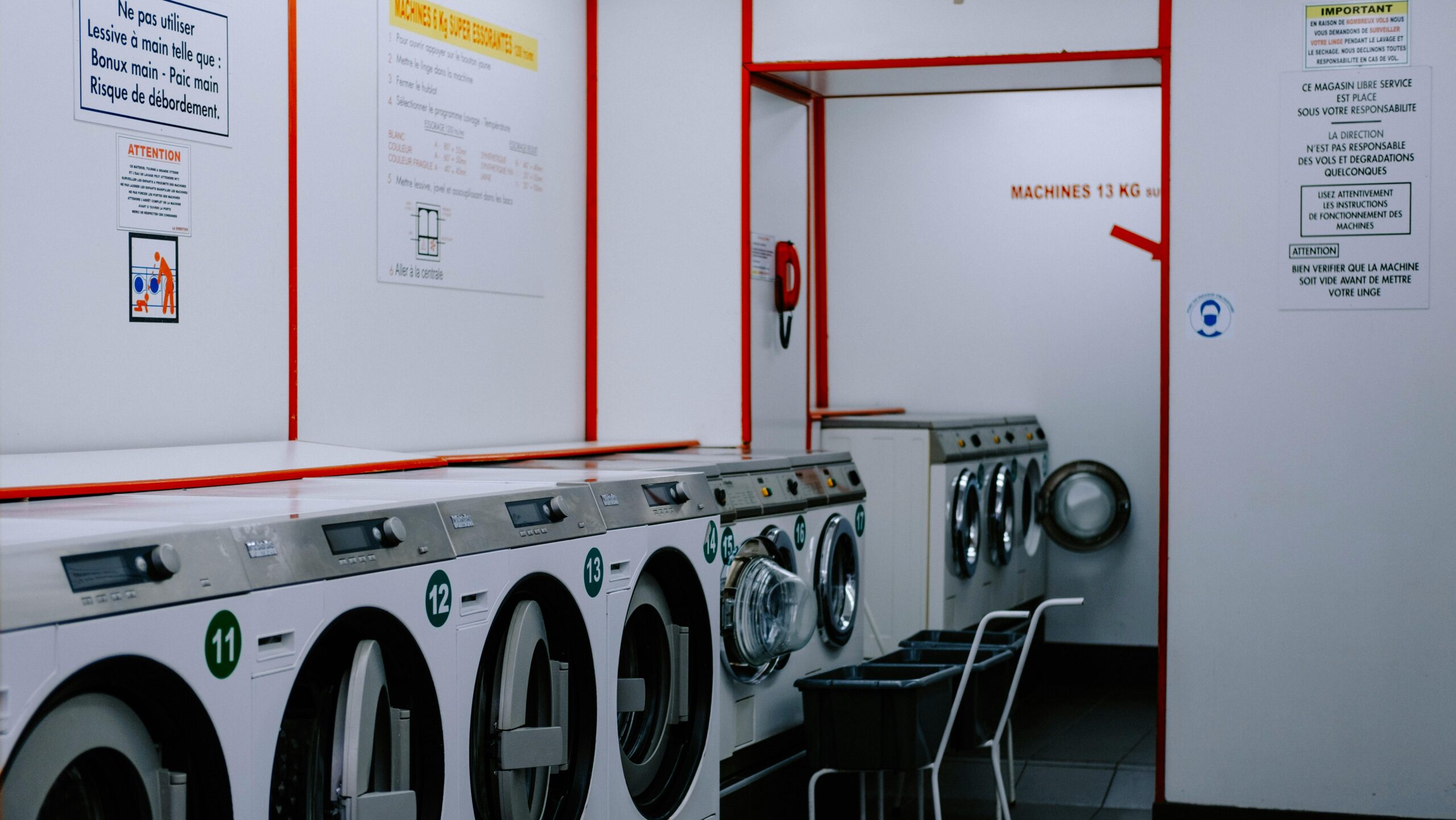Buying a laundromat can be a fast-track route to ownership with immediate cash flow, equipment in place, and an established customer base. Unlike building a laundromat from scratch, purchasing an existing operation eliminates months of construction, permitting, and guesswork about location viability. It also lets you review real financial records, machine usage data, and customer habits before making a decision.
But not all laundromats for sale are good investments—some are being offloaded because of deferred maintenance, poor location, or declining revenue. Successful buyers know how to evaluate the deal, ask the right questions, and structure the purchase wisely. When done right, buying an existing laundromat can provide steady income and scale-friendly growth. With a careful approach, you can step into an operational business and improve it from day one.
Why Buy an Existing Laundromat Instead of Starting New
For many entrepreneurs, buying an existing laundromat removes the barriers and risks associated with new construction and startup planning. The core infrastructure—plumbing, electrical, equipment, and customer access—is already in place, which significantly reduces upfront costs and uncertainty. In many cases, existing laundromats already generate positive cash flow, giving buyers a reliable income stream from the start. Instead of waiting months to open, you can transition into active ownership immediately.
Many sellers are retiring or shifting focus and are willing to offer favorable terms to serious buyers. You can also evaluate real-world operational metrics rather than estimating from a business plan. It’s a shortcut to ownership with less ramp-up time and more real-world data.
Key Factors to Consider When Evaluating a Laundromat for Sale
Not all laundromats on the market are equal—some are hidden gems with growth potential, while others are declining businesses in need of major investment. Your evaluation should go beyond revenue numbers and include location, demographics, lease terms, equipment age, and maintenance history. Knowing what to ask and what to inspect is essential to avoid costly surprises after the sale. A thorough due diligence process will help you spot red flags or uncover opportunities to add value quickly. Here are some of the most critical factors to examine:
- Lease Terms and Location Stability
Check how many years remain on the lease and whether there’s an option to renew. A laundromat’s location is its lifeline—without a secure lease, your investment is at risk. - Utility Costs and Infrastructure
Review water, gas, and electricity bills over the past 12–24 months. High utility bills may indicate inefficient machines or pricing that doesn’t match usage. - Machine Age and Mix
Inspect the washer and dryer brands, model years, and overall condition. Replacing a full set of machines could cost $100K or more—factor this into your offer. - Revenue and Expense Reports
Analyze tax returns, POS data, and profit/loss statements. If records are inconsistent or cash-heavy, look for supporting evidence like water usage or service records. - Competition and Neighborhood Growth
Assess other laundromats in the area and any new developments nearby. Growing neighborhoods with few laundry options can increase your market share over time.
Where to Find Laundromats for Sale
The laundromat resale market is active but often fragmented—opportunities may be listed on industry sites, local broker networks, or shared quietly within the laundry business community. Depending on your location, you may be able to find a strong prospect through a combination of online listings and offline relationships. Specialized business brokers can be helpful, especially those experienced in laundry or service-based businesses.
Don’t limit your search to just your ZIP code—sometimes the best deals are just outside your initial target area. Always confirm details in person before making any commitments. Here’s where buyers typically find listings:
- BizBuySell and BizQuest
Two of the largest platforms for small business sales. Include filters for laundromats, coin-op businesses, or dry cleaning shops. - LoopNet (for Laundromats with Real Estate)
Good for businesses selling both the laundromat and the underlying property. Valuable if you’re looking to avoid a lease altogether. - Laundry-Specific Brokers
Firms like PWS Laundry and Laundromat123 specialize in matching buyers with coin laundry listings. They often have access to private or off-market deals. - Local Classifieds and Facebook Groups
In smaller towns, laundromat owners may list directly. Join laundry business groups or regional entrepreneur pages to find hidden opportunities.
Financing the Purchase: Cash, Loans, and Creative Deals
Many buyers finance laundromat purchases through SBA loans, equipment financing, or seller-backed installment plans. The approach you choose depends on your credit profile, cash reserves, and how much of the purchase is equipment vs. goodwill. SBA 7(a) loans are a popular option for laundromat acquisitions because they offer low interest rates and long repayment terms.
Seller financing can also be a powerful tool if the seller is flexible and the buyer lacks full capital upfront. Be sure to conduct a detailed valuation, separating tangible assets (machines, leasehold improvements) from intangible ones (brand, location reputation, customer base). Work with a CPA or small business attorney to review your deal structure. With the right terms, you can acquire a laundromat with modest upfront investment and scale profitably over time.
How to Improve Profitability After Buying a Laundromat
Most laundromats for sale have room for growth—whether it’s through equipment upgrades, pricing adjustments, or service add-ons. The first step is to understand why the current owner is selling and what they haven’t optimized. Small changes—like improving lighting, offering Wi-Fi, or installing vending machines—can boost the customer experience and increase revenue. Adding wash-and-fold service or mobile app payments can help you attract higher-value users. Also look at marketing: many older owners underinvest in digital advertising or rely solely on foot traffic. Once you take ownership, you can implement SEO, Google reviews, and local promotions to improve visibility. A modest monthly investment in updates and promotion can produce outsized ROI in a relatively short time.
Working With Brokers, Attorneys, and Advisors
While you can negotiate directly with a seller, having professional guidance helps ensure you make a sound investment. Business brokers can help with valuation and negotiation, while attorneys review contracts and lease agreements for hidden liabilities. A due diligence checklist should include financials, equipment, lease terms, legal compliance, and local competition.
Bring in a licensed electrician or plumber to assess infrastructure if the building is older. A CPA can model the investment’s tax implications and ensure the numbers align. You don’t need a full acquisition team—but you do need trusted advisors who’ve done this before. Paying for guidance now can save thousands—or even your entire investment—later.
Closing Thoughts: Buying a Laundromat Can Be a Smart, Stable Investment
Purchasing a laundromat can offer steady income, operational simplicity, and high return on investment when you do your homework. By choosing the right location, understanding the financials, and structuring your deal wisely, you can acquire a business with built-in revenue and loyal customers. It’s a way to bypass the startup phase and jump straight into ownership with real momentum.
But like any investment, success depends on asking the right questions, planning ahead, and improving what you inherit. The best laundromat buyers look beyond the machines—they look at the market, the lease, and the long-term upside. With strategy and commitment, a laundromat for sale isn’t just a transaction—it’s the start of a stable, scalable business journey. If you’re ready to take the next step, the right opportunity may already be waiting.




